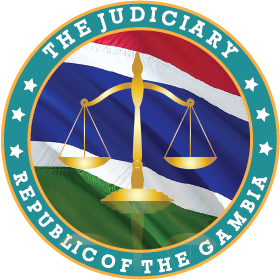Roles and Responsibilities
The Judiciary of The Gambia, like in many other countries, plays a crucial role in upholding the rule of law, ensuring justice, and safeguarding the rights and freedoms of its citizens. Below is a summary of the typical roles and responsibilities of the Judiciary of The Gambia:
Interpreting Laws: One of the primary functions of the Judiciary is to interpret laws passed by the Legislature. Judges in The Gambia are tasked with applying these laws to specific cases brought before them, ensuring that justice is served according to the law.
Adjudicating Disputes: The Judiciary is responsible for resolving disputes between individuals, organizations, and the government. This includes civil cases (e.g., contract disputes, property disputes) and criminal cases (e.g., prosecuting and judging criminal offenses).
Ensuring Fair Trials: The judiciary ensures that individuals accused of crimes receive fair trials. This includes the right to legal representation, the right to a speedy trial, the right to present evidence, and the right to confront witnesses.
Protecting Rights and Freedoms: Judges in The Gambia are tasked with protecting the constitutional rights and freedoms of individuals. This includes rights such as freedom of speech, freedom of religion, and the right to a fair trial.
Reviewing Laws and Executive Actions: The Judiciary has the authority to review the constitutionality of laws passed by the legislature and actions taken by the executive branch of government. This ensures that these laws and actions comply with the constitution of The Gambia.
Appointing and Disciplining Judges: The Judiciary is often involved in the appointment, promotion, and discipline of judges and other judicial officers. This ensures that only qualified and ethical individuals serve in the Judiciary.
Providing Legal Guidance: The Judiciary provides legal guidance and clarification on matters of law through its judgments and decisions. These decisions serve as precedents for future cases and help to ensure consistency and predictability in the legal system.
Administering the Courts: The Judiciary is responsible for the administration of the court system in The Gambia. This includes managing court proceedings, scheduling cases, and ensuring the proper functioning of the courts.
For more information about the roles and responsibilities of the Judiciary, refer to Chapter VIII of the 1997 Constitution herein extracted.

